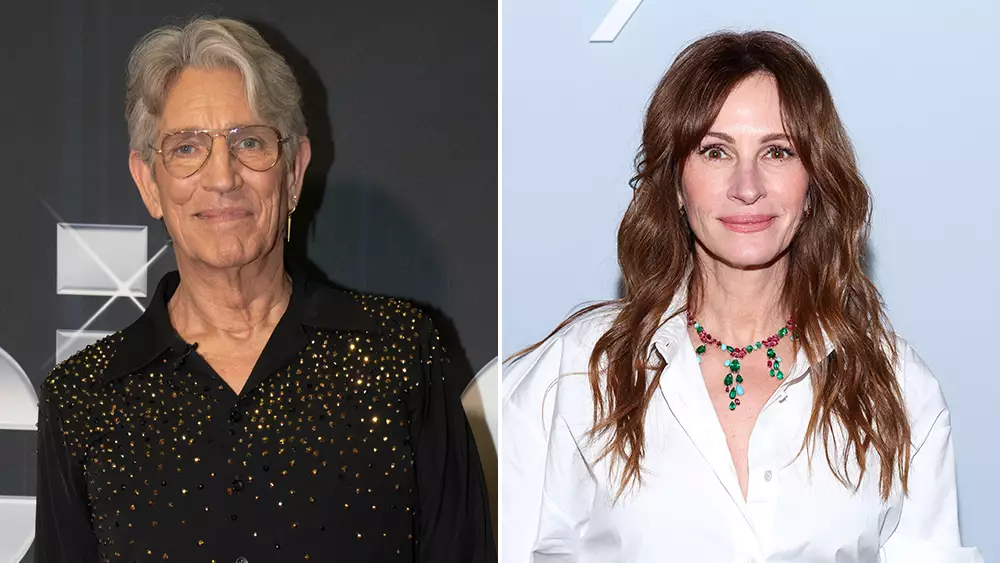In the world of celebrity, where public perceptions can shift quickly, feelings of pride and remorse can coexist in complex ways. Eric Roberts, a talented actor known for his role in the film “Runaway Train,” recently publicly acknowledged his past mistakes concerning his sister, Julia Roberts, in his newly released memoir, “Runaway Train: or, The Story of My Life So Far.” His candid apology for his previous remarks has sparked conversations on familial relationships, the nature of influence in the entertainment industry, and the journey of self-discovery.
In his memoir, Roberts faced the press head-on, confessing to having made “asinine” comments that oversimplified the nuanced and individual efforts that propelled his sister’s career within Hollywood. The underlying issue of his statements speaks volumes about how the narrative of success in the film industry often encompasses perceptions of credit and influence. By stating, “If it wasn’t for me, there would be no Julia Roberts,” he built a narrative that undermined Julia’s personal achievements. In his retrospective reflection, Eric articulates that his remarks were misguided and driven by a misplaced sense of pride that he has since come to regret.
The dynamics of sibling relationships can be intricate, especially in a high-stakes environment like Hollywood. Eric Roberts minimized Julia’s personal agency and talent by suggesting that his early efforts were the catalyst for her success. In doing so, he inadvertently portrayed her as reliant on him, a portrayal that many might interpret as disrespectful. His eventual realization that such claims were not only false but also damaging illustrates a profound understanding of how narratives can be shaped and reshaped over time.
Roberts has since acknowledged this inconsistency, clarifying in his memoir, “That’s not only unfortunate, but it’s also untrue.” By doing so, he not only expresses his remorse but also recognizes the value of Julia’s unyielding dedication and raw talent. He explains that Julia would have thrived in Hollywood independently, showing respect for her abilities in crafting her own path. This recognition is paramount in correcting the narrative he had previously spun and demonstrates real growth on his part.
Beyond the celebrity narrative, Eric’s memoir notably touches on his struggles with personal issues, including his addiction to cocaine. He reflects on how his challenges impacted his ability to parent his daughter, Emma Roberts, and his relationships with his sisters. This candid discussion reveals the often-hidden costs of fame: the turmoil of substance abuse and the resulting strains on family dynamics.
In choosing to confront these difficult memories publicly, Eric not only seeks forgiveness from Julia but also actively engages in a healing process for himself and his family. By openly addressing these issues, he acknowledges the darker aspects of the entertainment business and how they intertwine with personal identity. Through this narrative, he sheds light on the intricate relationship between talent, addiction, and the roles that family can play in an individual’s life.
A Hope for Acceptance and Growth
As Roberts continues to navigate his life in the public eye, his apology to Julia not only serves as a means of seeking forgiveness but also as a testament to his transformation as an individual. His hope that “Julie will accept this more public apology” signals a desire for reconciliation, which can often be a lifelong journey.
In a world where public personas often overshadow personal truths, Eric Roberts’ memoir stands as a reminder of the importance of accountability and humility. The journey of self-discovery and acknowledgment in “Runaway Train” offers insight into the lives of those behind the screen. Through his honesty, Eric Roberts not only aims to restore his relationship with his sister but also to inspire others facing their struggles and regrets. Thus, while he once claimed credit for Julia’s success, he now seeks to celebrate her accomplishments as truly her own, setting an example of maturity and evolved understanding in the age of celebrity culture.

Leave a Reply